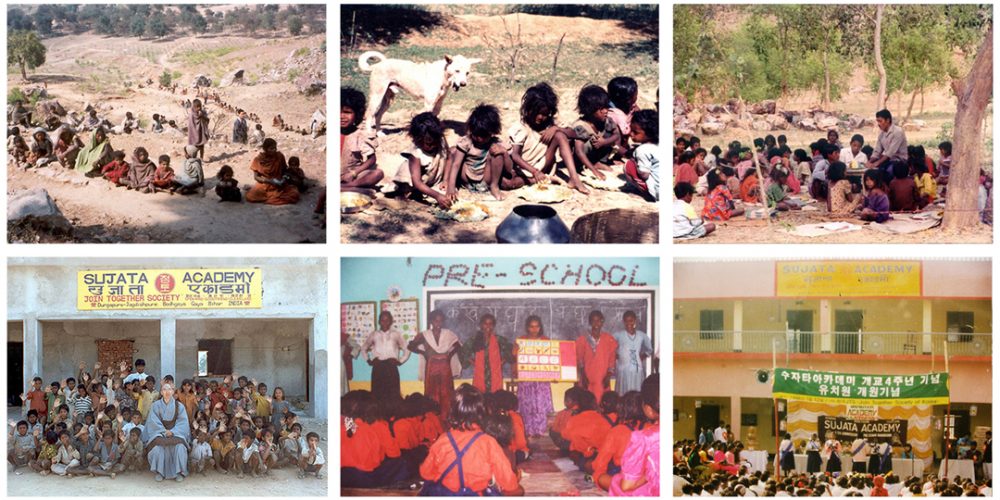“CHILDREN SHOULD HAVE ACCESS TO EDUCATION”

SUJATA ACADEMY DUNGESHWARI, INDIA
JTS provides preschool, elementary, and technical education to the destitute children in Bihar. The organization also runs the Youth Shramakana School for youths so that they will be able to contribute to the growth of the community.
In February 1994, local residents and JTS worked together to begin construction on the Sujata Academy. The local residents provided both the land and the labor, while JTS provided the necessary funding. The school, which began with 120 students, has continued to grow and currently accommodates 700.
PRE-SCHOOL
When Sujata Academy first opened, the elementary school students brought their younger siblings to school, making it difficult for the students to concentrate. As a result, JTS opened preschools for the student’s younger siblings. Now, there are 17 preschools in 17 villages, with a total of 1,800 preschool students. At the preschools, JTS provides nourishing meals to the students every day, as well as nutritional supplements and fruit in order to improve their health. Preschool classes follow the Indian preschool curriculum. However, additional programs, including play, music, dance, poetry, and bathing are provided for the physical and emotional growth of the children.
The goal of the Sujata Academy is to eradicate illiteracy in the region. Sujata Academy is free of charge. The students who wish to enroll at the middle and high schools are required to carry out volunteer work at preschools, hospitals, or health centers in the morning. They then take classes in the afternoon. This encourages students to learn to help others, contribute to society, and give back what they have received to the local community. These students are the future leaders of their community and the ones who will spearhead further efforts to develop the region.
